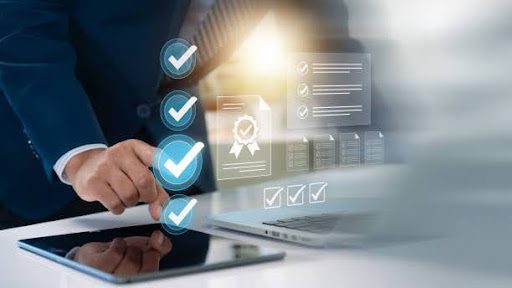Introduction: Why Business Verification Services Matter
In the modern interconnected digital economy, shell companies and fraudulent organizations are a serious threat to organizations across the globe. The risks of dealing with unlawful partners are actual, whether it is the disruption of the supply chain or financial fraud. This is where business verification services come in- assisting businesses to verify the authenticity of partners, suppliers and clients before conducting business.
Are you asking yourself how to check a business prior to a partnership or are you in need of a trusted business verification tool, then this guide will take you through all that you need to know about business identity verification and business screening.
What Are Business Verification Services?
Business verification services are compliance services that authenticate the authenticity of a company by verifying the registration information, ownership, and legal status.
They typically involve:
- Document Authentication – Checking incorporation certificates, licenses, and tax records.
- UBO (Ultimate Beneficial Owner) Verification – Identifying individuals behind the company.
- Sanctions & Watchlist Screening – Making sure that the company is not associated with money laundering or financing terrorism.
- Continued Surveillance – Identifying any risk status change.
Concisely, these services guarantee that organizations are able to check a business prior to engaging in contracts or financial association.
The need to verify Business Identity
1. Preventing Fraud
Fronts of financial crime are often run by illegitimate companies. Checking of business identity minimizes fraud.
2. Ensuring Compliance
There are stringent AML (Anti-Money Laundering) and CTF (Counter-Terrorism Financing) laws in place by governments around the world. Business verification services are used to address these compliance requirements.
3. Building Trust
Being aware that your partners are legitimate builds up relationships and credibility.
4. Reducing Operational Risks
Comprehensive business screening reduces reputational losses and financial losses.
How to Verify a Business
The question many organizations pose is: how do I check a business before doing business with them? Here’s the standard process:
- Check Registration Records – This is an access to official company registries where the business licenses are verified.
- Review Ownership Structure – Ensure transparency of shareholders and beneficial owners.
- Screen against Compliance – Use sanctions lists, PEP (Politically Exposed Persons) databases and watchlists.
- Check Documents– Authenticate incorporation documents, tax certificates and licenses.
- Apply a Business Verification Solution – Automate the whole process with state-of-the-art software that is AI-based and global databases.
The Business Screening Role
Business screening is not a mere verification. It entails the evaluation of the risk profile of a business based on its history, financial status, and compliance history.
Important elements of business screening are:
- AML/CTF Checks – The business is not engaged in illegal operations.
- Adverse Media Monitoring – Checking global news sources for negative reports.
- Continuous Surveillance– Monitoring the risk exposure changes.
This holistic attitude makes companies comfortable to deal with reputable and legal partners.
Selection of the Right Business Verification Solution
Organizations need to consider: when choosing a business verification solution:
- Global Coverage – Access to international business registries for cross-border verification.
- Automation – AI-powered document checks and UBO identification for efficiency.
- Real-Time Monitoring – Alerts for changes in company risk profiles.
- Compliance Tools – Built-in checks against AML and CTF regulations.
- Scalability – Capability to support thousands of verifications as the business expands.
Top business verification solutions are built into company processes, so that there is limited friction and maximum compliance.
Industries That Rely on Business Verification Services
- Banking & Finance – To comply with AML regulations and avert fraud.
- Cryptocurrency Exchanges– To prevent illegal trading and to build trust.
- E-commerce & Marketplaces– To verify sellers and vendors.
- Supply Chain and Logistics – To verify the authenticity of international trade partners.
- Healthcare & Pharmaceuticals – To maintain safe relations with suppliers.
Challenges in Business Verification
Although necessary, business verification services have challenges including:
- Data Fragmentation – Company records spread across multiple jurisdictions.
- Complex Ownership Structures – UBOs in multinational corporations may be hard to identify.
- Differences in Regulations– The different compliance requirements in different countries.
- Cost of Compliance-Manual verification can be resource intensive.
A contemporary kyb verification is a solution that handles these issues through automation and AI-based risk analysis.
The Future of Business Verification Services
The following generation of business verification services will be based on:
- AI & Machine Learning – For faster, more accurate verifications.
- Blockchain Technology – To have clear and unalterable records of the company.
- Biometric Integration – Combining business identity verification with individual KYC checks.
- Global Standardization – Increased international business screening standards.
Summary: The Future of Trust is Business Verification.
Due to the increasing fraud and compliance risks, verification of businesses has become a necessity among the global organizations. Preventing financial crime and making sure that partnerships are transparent are some of the solutions that enable companies to safely check a business before getting into a contract.
Investing in sophisticated business verification solutions, organizations are able to mitigate risk, comply with global regulations, and earn trust with partners across the globe. Business identity verification and business screening will characterize the future of secure business transactions in 2025 and beyond.

